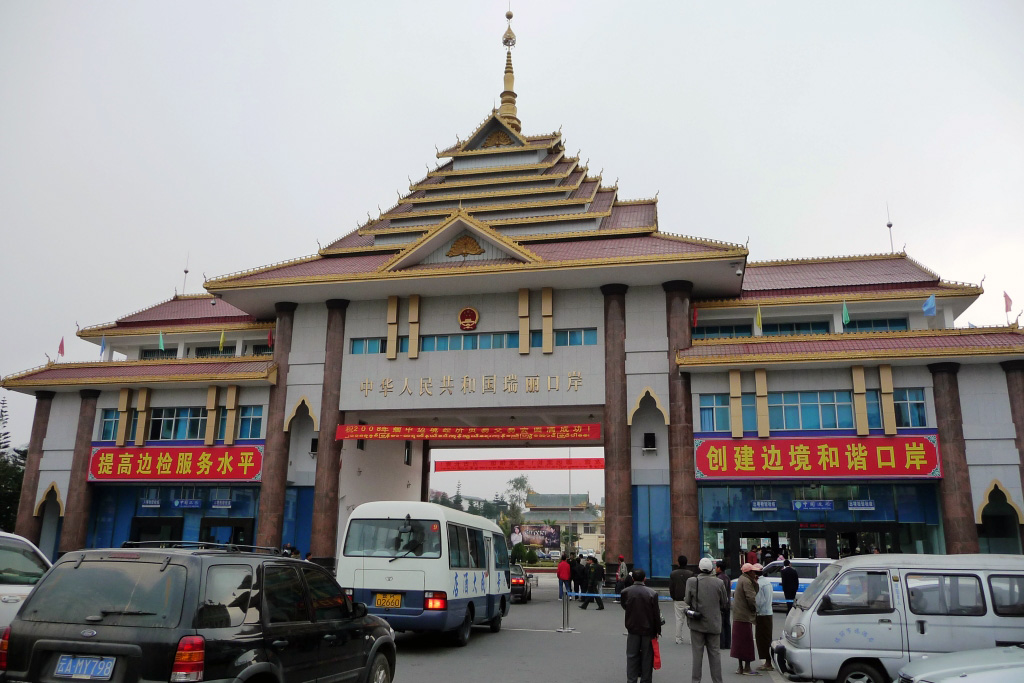Myanmar Government set to ink a framework agreement with China on border cooperation zones establishment which is part of Belt and Road Initiative (BRI)
28 สิงหาคม 2562
The Myanmar government is ready to sign a framework agreement with China on the establishment of cross-border economic cooperation zones, paving the way for the implementation of Beijing’s grand infrastructure plans in the country as part of its Belt and Road Initiative (BRI).
The assistant permanent secretary and spokesperson for the Ministry of Commerce, U Khin Maung Lwin, told The Irrawaddy, “The related government ministries have already reviewed a framework agreement proposal submitted by China.”
“We received comments from the related ministries. We also reviewed the proposal with experts. We will send the proposal back to China. Our side is preparing to sign [a framework agreement] very soon,” he said.
According to U Khin Maung Lwin, the framework will cover a number of major agreements, particularly on the formation of a bilateral joint committee for the implementation of the cross-border economic cooperation zones; the assignment of management roles for the zones; and types of incentives for investors.
As part of the BRI, Beijing and Naypyitaw signed a 15-point memorandum of understanding (MOU) last year on the China-Myanmar Economic Corridor (CMEC), which will reach from China’s Yunnan Province to Mandalay in central Myanmar, from where it will stretch south to Yangon and west to the Kyaukphyu Special Economic Zone in Rakhine State.
The Myanmar government agreed to build the zones during a visit by State Counselor Daw Aung San Suu Kyi to Beijing to attend a forum on the BRI in 2017.
Launched in 2013, the BRI is Chinese President Xi Jinping’s signature foreign policy project. It aims to build and expand roads, rail lines and shipping lanes linking at least 70 countries from China to Europe through Central and South Asia, the Middle East and Russia to boost trade and investment.
The government last year approved three sites in Kachin and Shan states along Myanmar’s border with China at the first implementation meeting of the Economic Cooperation Zones Central Committee in Naypyitaw.
The zones are in Kanpiketi town, in Kachin State’s Special Region 1 (currently under the control of the New Democratic Army-Kachin militia, a border guard force allied with the Myanmar military; Chinshwehaw, in Shan State’s Laukkai Township (part of the Kokang Self-Administered Zone); and in Shan State’s Muse Township.
Chinshwehaw and Muse are already major trading hubs along Myanmar’s border with China’s Yunnan Province. Kanpiketi currently does regular trade with China as well. The total cost of construction has not been calculated yet.
“China wants to prioritize the implementation of the Muse economic cooperation zone,” U Khin Maung Lwin said.
Regarding concerns that the framework agreement proposal was prepared by China, U Khin Maung Lwin said, “We made some decisions based on their proposals, but we have carefully considered all the facts in order to avoid any weaknesses” in the agreement.
“We have amended some facts in accordance with our wishes. We also ensured that the agreement does not contain any [harmful] legal obligations,” he added.
The chair of the Central Committee for the Establishment and Implementation of Myanmar-China Border Economic Cooperation Zones (BECZ), Dr. Than Myint, who is also the Union minister for commerce, visited Beijing last week to discuss the promotion of Myanmar exports to China. According to U Khin Maung Lwin, implementation of the Myanmar-China Border Economic Cooperation Zone was a priority item on the agenda during the trip.
“Officials are going to Kanpiketi to conduct a ground survey soon. We will also meet local people,” U Khin Maung Lwin said.
Myanmar officials did ground surveys in the Muse and Chinshwehaw areas last month.
In late July, the Myanmar government held its third coordination meeting of the BECZ at the Shan State cabinet’s office in Taunggyi. At the meeting, minister Dr. Than Myint said China has nearly completed its task of building infrastructure for the three locations, while the Myanmar side has to conduct preliminary negotiations on relevant use of land and transportation.
Both sides still need to negotiate the demarcation of border areas and after that the government will call for an EOI (expression of interest), the minister said.
He ordered committee members to ensure the agricultural production and socioeconomic status of the local residents is not harmed by the projects.
The respective administrative bodies will need to ensure residents in the project areas who have to relocate are given proper compensation for their homes and farmlands and are also given corresponding land in return, he said.
However, the ministry has not yet announced the number of villages that will be affected by the projects.
According to the spokesperson, Myanmar needs to make preparations for the infrastructure projects such as upgrading and constructing new roads in northern Shan State to improve links with the border economic cooperation zones.
The ministry is currently considering constructing a new highway in Chinshwehaw and upgrading a highway near Muse.
“We will ask China for help with those projects,” he said.
Industrial zones will be built near the border cooperation zones. These will comprise trade and processing areas, small and medium-sized industrial facilities, trade logistics centers and quality packing centers for agricultural products bound for export to China, according to the ministry.
(The Irrawaddy: https://www.irrawaddy.com/news/myanmar-set-ink-pact-china-border-cooperation-zones.html )











